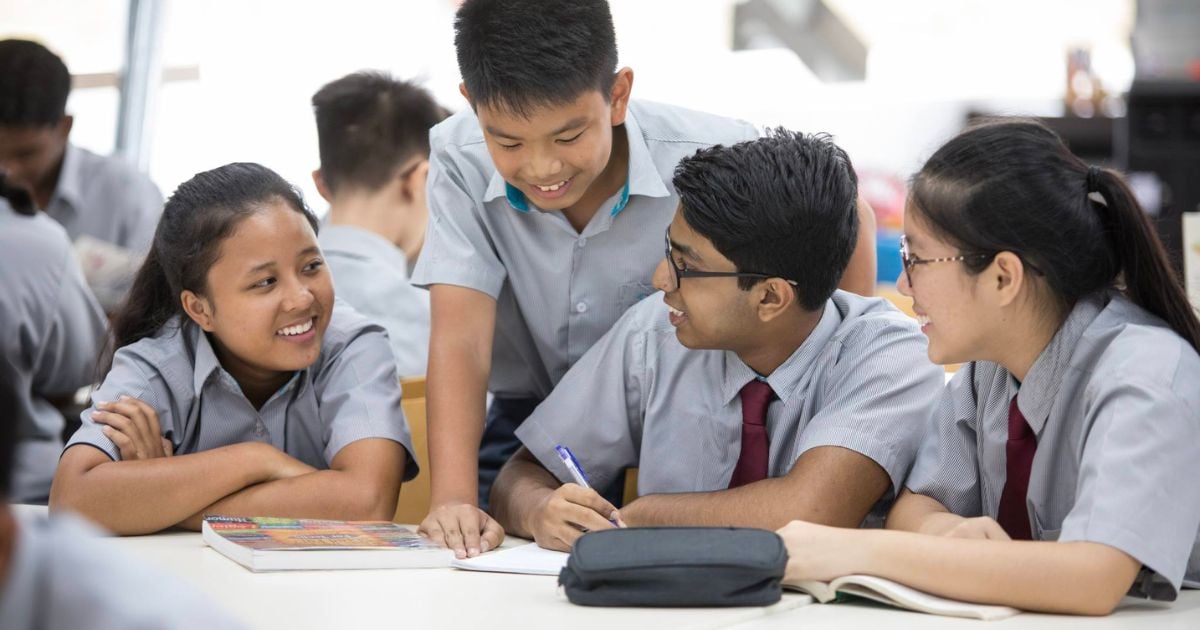Singapore’s remarkable intelligence quotient (IQ) performance is well-known worldwide.
In 2023, Singapore secured the third position globally for its high average IQ, standing at 105.9, according to a report by cogniDNA.
Singapore consistently tops the rankings in international Olympiads and test scores, solidifying its reputation as a front-runner in education systems globally.
Yet again, Singapore has outperformed the competition, securing the top spot, thanks to the outstanding achievements of our fifteen-year-olds.
Singapore Students Ranked #1 in Maths, Science & Reading; Was Second in Last Study
According to The Straits Times, Singapore’s fifteen-year-olds have again excelled in an international study measuring their problem-solving abilities.
Of 6,606 students from 149 secondary schools and 15 private schools, including international schools and madrasahs, Singapore ranked first in mathematics, science, and reading in the 2022 Programme for International Student Assessment (PISA).
This study is typically conducted every three years by the Organisation for Economic Cooperation and Development (OECD) but was delayed by a year due to the COVID-19 pandemic.
In the 2018 PISA study, China had surpassed Singapore in all three subjects; Singapore had secured the second position, with China in the lead.
This time, however, China did not participate in the 2022 PISA test due to school closures during the study period.
Compared to 2018, Singaporean students who participated in PISA 2022 maintained their mathematics performance and showed significant improvement in science.
However, there was a slight decline in the reading performance of Singaporean students.
Trend: Decline in Reading for Singapore and Other Countries
The Ministry of Education (MOE) mentioned that the drop in reading performance among Singaporean students aligns with a similar trend in many other countries.
This may reflect a worldwide shift in reading habits.
In the latest PISA assessment, Singapore continued to have many high-achieving students.
Specifically, 23% of Singaporean students excelled in reading, 41% in mathematics, and 24% in science, achieving proficiency levels five and six.
Singapore had fewer students performing poorly, with 11% of Singaporean students in reading and 8% in mathematics and science, achieving proficiency levels below two.
The MOE highlighted that PISA evaluates the ability of students to apply knowledge to unfamiliar situations and real-world scenarios.
Singaporean students have demonstrated strong mathematical reasoning skills, the ability to distinguish relevant information, and proficiency in computational thinking, such as pattern recognition and algorithm development, when solving complex problems in various modern contexts.
These critical skills prepare students to adapt to global changes like digitalisation, new technologies, and the evolution of new professions.
According to TODAY, Singaporean students were also asked to complete a questionnaire about their feelings about their school and home life.
The survey found that while 88% of Singaporean students reported having their main meal with their parents, only 49% felt that their parents showed interest in their schoolwork at least once a week.
This figure of parental interest in schoolwork fell well below the OECD average of 66%.
Additionally, only 47% said their parents discussed any school-related problems with them at least once a week, again below the OECD average of 57%.
MOE emphasised parents’ vital role in education and pledged to work closely with them and schools to offer enhanced support for their children.
Two noteworthy areas of concern were students’ perceived lack of parental support and insufficient physical activity, with 29% stating that they don’t exercise after school.
A mere 22% engaged in exercise or sports four days a week after school, contrasting with the worldwide average of 39%.
Education Minister Chan Chun Sing commended students for their dedication to learning despite pandemic disruptions, as reported by The Straits Times.
He thanked educators for their swift adaptation to online learning and innovative teaching methods that ensured continued learning.
He encouraged everyone to aspire to exceed their expectations rather than just aiming to outperform others.
